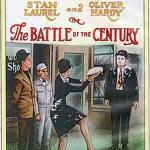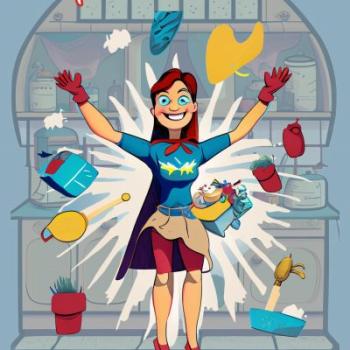Amanda (16): She is a "rebel," which in this movie means she occasionally stays out past her curfew...by an hour. And when she was eight, she didn't want to be baptized...for ten months. (She also has a nose piercing -- oooh, edgy! -- which for some reason no one in the movie notices or discusses.)
- In an "edgy" film: she's involved with drugs.
- In an "edgier" film: ...and pregnant.
As bishop, Aaron has to help ward members with their own trials, which in this movie are limited to: sicknesses, job layoffs, not knowing who their home teachers are, and not having family members visit regularly.
(Edgier movie: "So, Bishop, why were blacks denied the priesthood again?" "Bishop, my husband is verbally and physically abusive...and he's one of your counselors." "Bishop, I just learned about Joseph Smith and polyandry and, um...I have some concerns.")
Reading the above descriptions you might wonder where the drama is in the movie. It's a good question - most LDS viewers would love to have Aaron's family's "trials."
Vuissa, like all filmmakers, has the right to create whatever narrative he deems appropriate - no one needs to be "edgy" for the sake of being "edgy," certainly - but how are viewers supposed to be emotionally invested in the protagonist's success, when he's already pretty successful? Aaron's family, right up to the end of the movie, spends most of their time smiling and doing happy things.
(Aaron's one emotional breakdown - when an 80-something-year-old widow in his ward passes away - seems a little forced. If a good woman at the end of her life passing away in peace is really the worst thing that's happened in Aaron's family or ward, then - well, hmmm... Compare to him finding out his 16-year-old daughter overdosed or something...)
Like Vuissa's previous film The Errand of Angels - where the sister missionaries' approach to resolving concerns was to smile politely and hope their investigators forget about those silly concerns so they can get on with their baptism - One Good Man doesn't have any intention of exploring any true concerns or trials in active LDS life. No one ever doubts their testimony, or speaks angrily with another person, or struggles with any specific, identified problem. Things are so "safe" the experience is pleasant, but a little hollow for anyone with any real-world experience in the LDS Church.
It's not that the movie needs a gay character, or someone who is involved with drugs or pornography in order to be interesting, you just get the sense in this movie's universe, drugs (or gay members) don't even exist, and thus no need to give any of those issues even one thought. Short of job layoffs (which only affect other people - Aaron is never in danger of losing his own job), there's nothing to bind this film solidly in the real-world, for real-world Church members to identify with.
There are two good elements, which I will mention: One Good Man has one (1) instance of thinking outside the LDS box - Aaron comes up with a meaningful "solution" to the problem of his son-in-law's parents not being able to attend the temple. I won't spoil it, but this is probably the best and most emotionally genuine scene in the film.
And there is one interesting plot element - not coincidently, the element that contains the most inherent drama - that involves the awkward conflicts that can arise when you have a working relationship with someone in your ward, where you're both their bishop and their boss. (This suggests a direction the film could have taken, but didn't. See the "Notes" section below.)
In the end, I'm not sure what Christian Vuissa intended the point of One Good Man to be, as the main character is a good man at the beginning, and is just about the same at the end. "Be patient with your bishop," perhaps, "because he's probably got a lot on his plate"?
The end result is more of a "cinematic scrapbook" of LDS experiences, rather than a dramatic statement. It is full of images of families talking and laughing together, sons excitedly opening mission calls and returning home honorably, daughters getting married in the temple, parents celebrating 25 years of a happy marriage, etc. LDS families who don't have more serious problems to worry about may smile and enjoy One Good Man as reminiscences of their own happy family experiences.
LDS families who do have more serious problems to worry about, though, might possibly still enjoy this brief "fantasy" look at an idealistic family, but more likely will reasonably ask, "Do the filmmakers seriously think this is a realistic portrait of life in the Church today?" A fair question, that...




